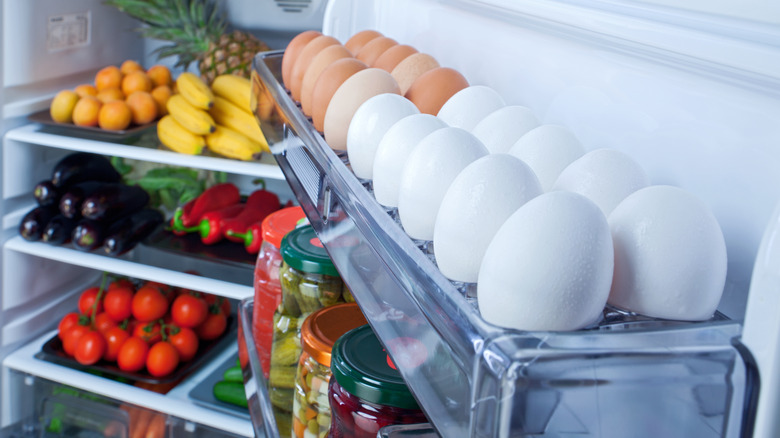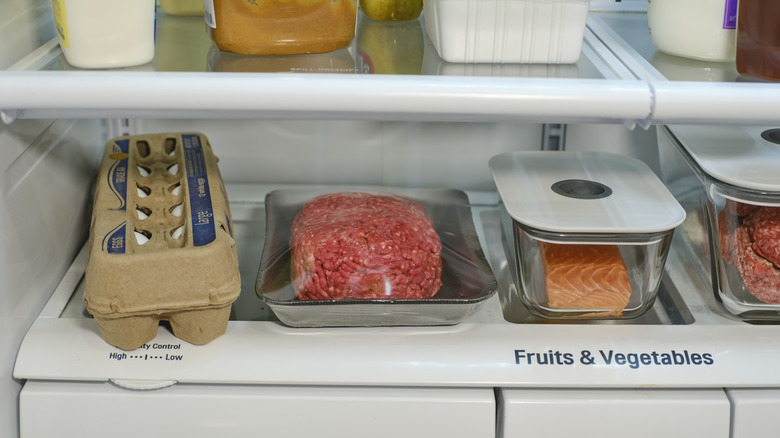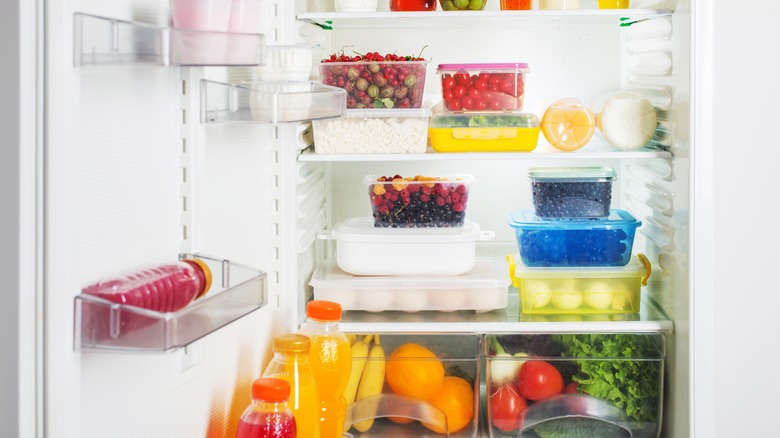It's Time To Stop Storing Eggs In The Refrigerator Door
Chances are, eggs are one of the most used foods you have in your fridge. A USDA report shows the average American eats a staggering amount of eggs per year, 279 in 2022 to be exact. Unfortunately, although convenient, the door is the last place you should store eggs in your fridge. The best place for your eggs is on one of the shelves in the main compartment. The reason for this is that the temperature in the door fluctuates more than in the main fridge area. When the refrigerator is opened, the food stored in the doors is exposed to the warmer outside air.
This frequent exposure to warm air, causing a fluctuating temperature, may push your eggs to deteriorate in quality faster than if you store them on the main shelves, where the temperature is more stable. Even though some refrigerators have egg compartments in the door, the USDA recommends storing eggs in the coldest area of the fridge. This will reduce the risk of contamination from bacteria like salmonella and increase the shelf life of your eggs.
The best place to store your eggs
The USDA recommends refrigerating your eggs at 40 degrees Fahrenheit or colder to prevent foodborne illness. They also advise that eggs will last in the fridge between three and five weeks — when stored in the coldest part. Of course, we're talking about store-bought, pasteurized eggs. You may be surprised about the opinions on how long farm-fresh eggs can last.
The back of the bottom shelf is typically the coldest part of the refrigerator so this makes a great spot to keep your eggs. This is because cold air descends and the farther away from the door the colder it will be. However, storing them on any shelf in the main compartment is better than the door. When you take your eggs out of the fridge, make sure not to leave them out for more than two hours to help prevent bacteria from growing.
What can you store in the fridge door?
Along with eggs, other foods that aren't recommended for the fridge door are poultry, meats, fruit, vegetables, and dairy. Pretty much anything that will be adversely affected by fluctuating temperatures. So, if you can't store all of those things in your fridge door, what can you store there? The best answer is condiments like ketchup, mustard, jellies, jams, salad dressings, and other items with preservatives that can withstand the up-and-down temperatures. Drinks like juice and soda are also fine to be in the door.
Although fruits and veggies shouldn't be in the door, they also won't be at their best on the shelves. Most modern refrigerators have multiple crisper drawers that allow you to control how much airflow gets in. Low humidity means there will be some air getting into the drawer while high humidity is completely shut. Certain fruits and veggies that rot faster like apples, pears, and avocados, should be kept in the low-humidity drawer while the high-humidity drawer is good for retaining moisture which keeps leafy greens fresher, longer.


